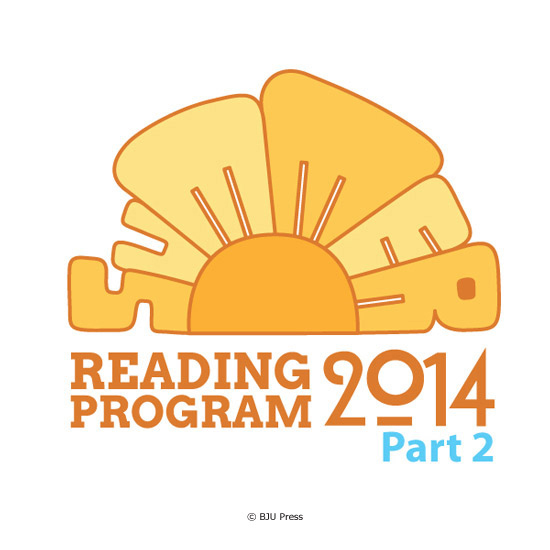We hope you’ve signed up your child(ren) to be a part of the BJU Press Summer Reading Program. If you haven’t, there’s still time! Registration is open until June 17.
A few weeks ago we shared part one of our interview with JourneyForth acquisitions editor Nancy Lohr. Nancy shared with us some great information about the BJU Press Summer Reading Program and gave us some tips for encouraging reluctant readers to read this summer. Below are some more great nuggets from our conversation.

What would you say to parents of special needs children who want to participate?
I would shout, “Hurrah for you!” The fact that your child cannot lift words from the page without some help doesn’t mean his or her literary taste buds won’t enjoy the story just as much as other children. Customize this reading program to maximize its effectiveness for your child. You may need to break the reading sessions into smaller segments, or “read” audio books while following along in the print book. You can do the same kind of seeing/hearing with eBooks by using the text-to-speech function of eReaders along with the on-screen text. Some books are available in DVD format so you can watch with the closed captions turned on. The Mice of the Herring Bone DVD from ShowForth is an example of this type of book. If you have other ways that you make reading accessible to your special needs child, we’d love for you share your approach with us on the JourneyForth Facebook page.
What’s the most important thing for parents to remember when choosing reading materials for their children?
Summer reading qualifies as leisure reading, so engage your children in the selection process to find topics of interest. Let your children read the materials that they didn’t have time for during the school year. Children learn how to read in school; they learn to love reading when they are immersed in topics or stories that they enjoy.
Don’t be overly concerned about whether the material is “hard enough.” Certainly you don’t want to let a capable reader slide by and gain little, but experts agree that regular reading in materials of the child’s choice is one of the best ways to strengthen reading skills as well as to develop a love for the written word. And the children who learn to love reading are the ones who will be reading long after the last school assignment is complete.
As a librarian, I often saw children who used their summer reading time to read all of the Hardy Boys® series—in numerical order—or some challenge of that nature. Those children did a heap of reading during the summer and had fun in the process. That’s huge motivation regardless of their skills. Reading is an accrued skill that develops as children read regularly.
What are some reading challenges that your child faces? Let us know in a comment.
Leave a Reply